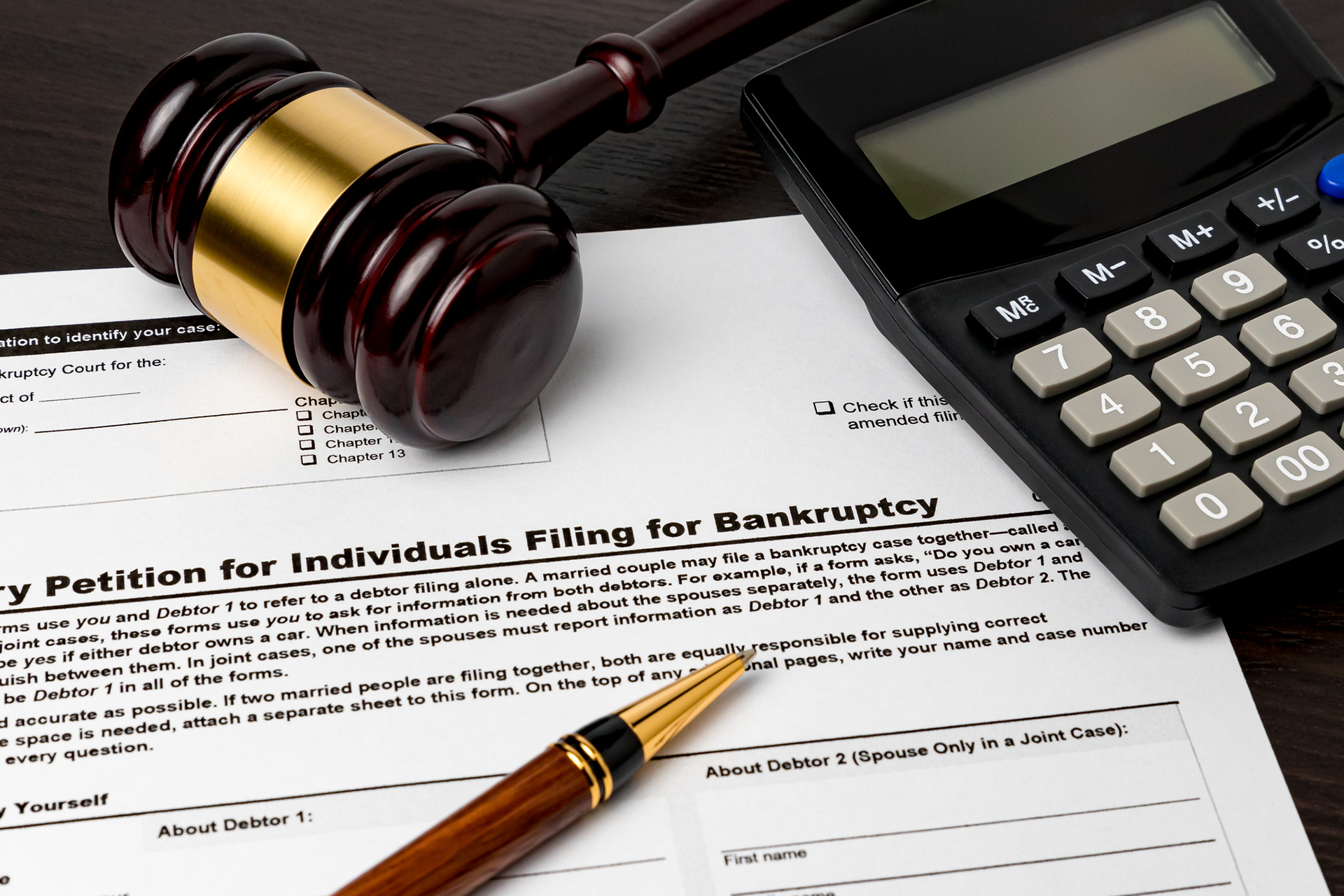Chapter 7 Bankruptcy can be an uncomfortable topic for many. TD Ameritrade recently published a report that found that most people would rather discuss politics and religion than talk about finances.1 This comes at a time when wages have been stagnant, healthcare costs have skyrocketed, and the cost of living has risen to a new high. A recent study also showed that 63% of Americans, almost 150 million U.S adults, are living paycheck to paycheck.2 This is not just a problem of low monthly income earners as nearly 40% of high income earners, those making more than $100,000 annually, are also living paycheck to paycheck.3
To make matters worse, COVID 19 has disrupted everyday life and triggered massive economic downturn, inducing historic drops in consumer spending and the highest levels of unemployment since the Great Depression. According to the U.S. Census Pulse surveys, over 50 percent of households experienced income loss.4 If you’ve been hit hard financially by the pandemic, you are not alone as millions of Americans are facing unemployment, foreclosure, and other such actions. There is no shame in feeling like you’re out of options – filing bankruptcy can be one of the most responsible and honest steps you can take to better your family and improve your quality of life.

What Chapter 7 Bankruptcy Means For Your Debt
A Chapter 7 bankruptcy acts as a “reset” button on your debt. While creditors have vast power to collect and enforce debts, Congress created bankruptcy to fight back. In a Chapter 7 bankruptcy case, the bankruptcy trustee gathers and sells the debtor’s nonexempt assets and uses the proceeds of such assets to pay the creditor in accordance with the provisions of the Bankruptcy Code.
To qualify for Chapter 7 bankruptcy, you:
- Must pass the means test, which looks at your income, assets, and expenses
- Cannot have completed a Chapter 7 in the past eight years or a Chapter 13 within the past six years
- In some cases, cannot have filed a bankruptcy petition that was dismissed within the last 180 days
- Must attend credit counseling from an approved credit counseling agency within 180 days before filing
After you file for Chapter 7 bankruptcy and your debts are discharged, you’re in position to start fresh. Unfortunately, bankruptcy has a stigma that surrounds it.
Here are some commonly held misconceptions about bankruptcy:
1. “Bankruptcy Is For People Who Are Financially Irresponsible.”
False! Most people who file for bankruptcy are good hardworking people. A car repair, sudden unemployment, credit card debt, tax debt, business debt, injury, student loans, family emergencies, and other unexpected expenses can have unforeseen financial consequences. According to a study published in 2019, 66.5% of bankruptcies were a result of outstanding medical conditions.5
To avoid bankruptcy many Americans, look at other options, including, payday and title loans, pawnshops, and other high-interest loans. These loans are just as likely to put you further back from paying off your obligations. One small misstep will have debt collectors calling, causing borrowers to consider yet another high-interest loan. This cycle repeats again and again.
When a bankruptcy case is filed, the Bankruptcy Court issues an order and all collection activity must stop. This order is known as the “automatic stay,” and it prohibits your creditors from taking any action against you. This is also the main reason why creditors have done all they can to ensure that people discuss bankruptcy as little as possible. By foregoing bankruptcy, creditors continue to garnish bank accounts, levying wages, collecting judgments, and accruing interest on debts of up to 600% annually. This collection activity can last forever.
2. “Bankruptcy Can Ruin My Financial Situation.”
False! Bankruptcy does have a negative impact on your credit score. However, late and missing payments also negatively impact your score. Typically, bankruptcy stays on a person’s credit score for 7-10 years, but the effects are not permanent. In fact, if you take the proper steps, it’s remarkable how quickly your credit score can recover after undergoing the bankruptcy process. You may even qualify for a post-bankruptcy credit card. We have had clients qualify for home loans in as little as 2 years after filing for Chapter 7 bankruptcy.
3. “Bankruptcy Means That I Will Lose Everything I Own.”
False! Bankruptcy laws were written to help people, not hurt them. Most states have laws protecting certain items and assets in the bankruptcy process. For example, Idaho allows debtors to retain up to $175,000 of equity in their home. A debtor is also allowed to keep a vehicle with a value of up to $10,000. If a husband and wife file together, they can each keep a vehicle of up to $10,000. There are also exemptions for clothes, guns, household furnishings, retirement accounts, wedding rings, business tools, etc. Although these items must be disclosed in the bankruptcy petition, most people that are represented by an experienced attorney get to keep all of that property. Those with nonexempt property can usually also keep their property if they pay the trustee the fair market value of the property. However, this payment must come from the debtor’s exempt assets. We highly recommend talking to an attorney to craft a plan that suits your individual needs.
4. “I Could Never Qualify for Bankruptcy.”
Never say never! To qualify for a Chapter 7 bankruptcy, a debtor must pass the “means test.” The means test requires a debtor to show that their income is low enough to file a Chapter 7. A debtor automatically qualifies if their income is lower than the median income in their state. The data used by the means test is supplied by the Department of Justice and is updated biannually. If a debtor’s income is over the median income, they must follow the means test calculations on Form 122-A. A link to the current data can be found here: https://www.justice.gov/ust/means-testing. If a debtor does not meet the means test, a Chapter 13 bankruptcy may be a better option.
5. “My Debts Cannot Be Discharged in Bankruptcy.”
This is also another common myth. Chapter 7 bankruptcy will discharge most unsecured debt. Unsecured debts are items where there is not a lien on certain property. This includes items such as personal loans, utility bills, credit card charges, medical bills, and more. Secured debts can also be forgiven, but the property that secures that debt would have to be surrendered in the bankruptcy discharge, such as giving up a car to remove a car loan. Types of debt that cannot be discharged in bankruptcy include items such as child support, spousal support, student loans, some taxes, most court fines, and restitution.

Let Gordon Delic & Associates Help You Navigate Chapter 7 Bankruptcy Filing
Bankruptcy is not for everyone, but it can be a tool to provide some much-needed relief. The stigma of bankruptcy gives creditors even more power to drag people into more debt, making it seem as though there is no way out. This is simply not true. There are a number of factors that must be considered when deciding whether Chapter 7 bankruptcy is the right decision for you, and it can be difficult to make this determination alone. An experienced Chapter 7 bankruptcy attorney will keep you informed of your rights while ensuring that you understand all of your options. At Gordon, Delic and Associates, our attorneys have helped countless people just like you hit the reset button on their debt with Chapter 7 bankruptcy. Please contact us for a consultation.
Contact
References:
3. https://www.businessinsider.com/high-earning-henry-millennials-six-figure-salaries-feel-broke-2021-6
4. U.S. Census Bureau, 2020a,b
5. https://www.cnbc.com/2019/02/11/this-is-the-real-reason-most-americans-file-for-bankruptcy.html



